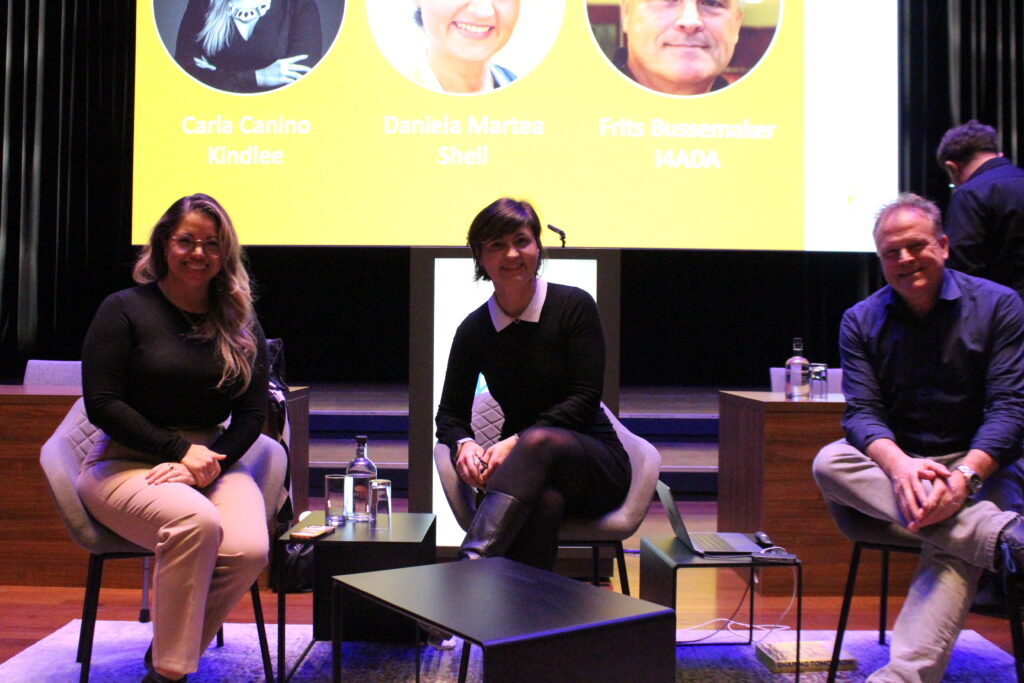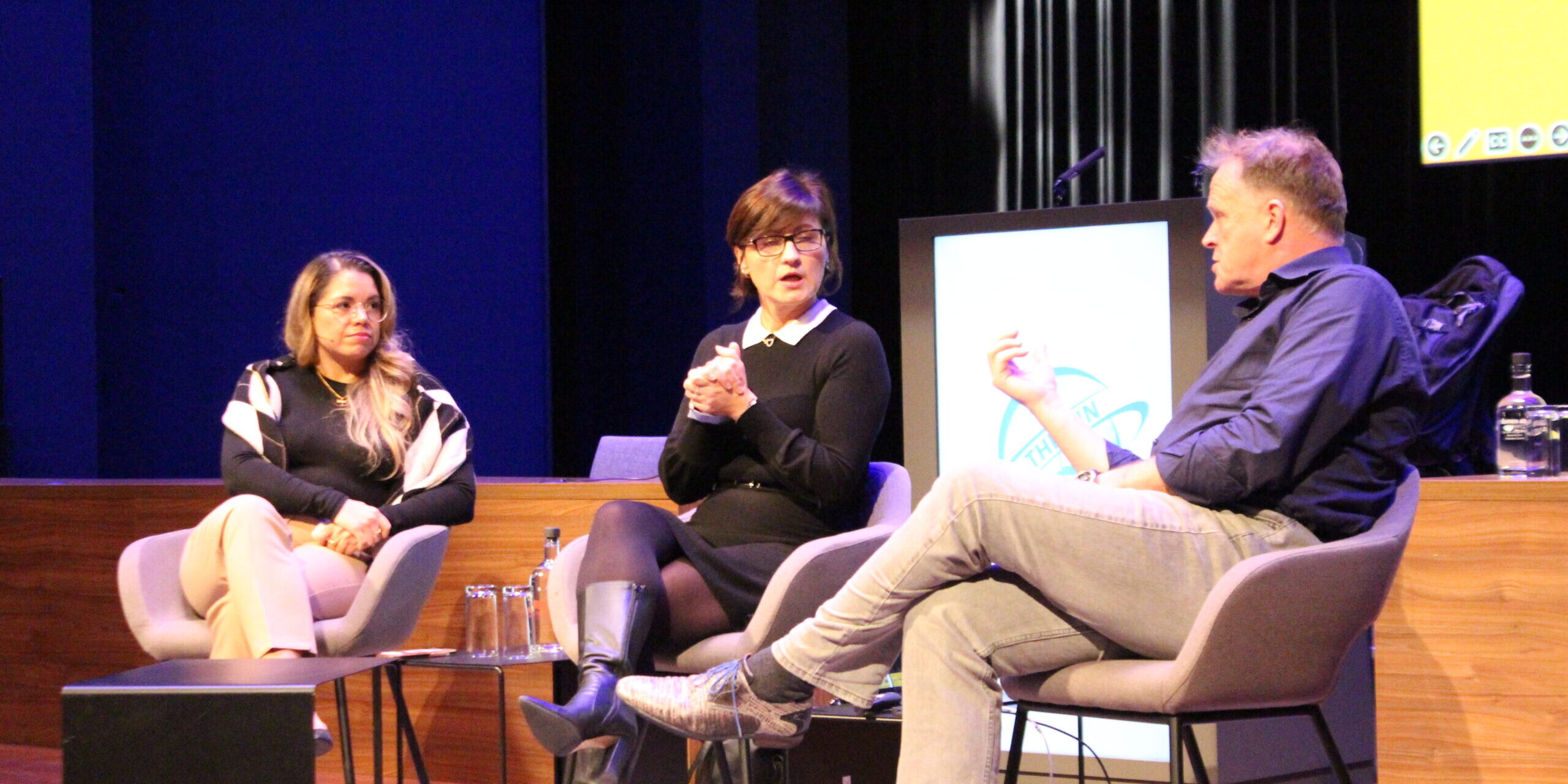Evening Entertainment : A Panel of A.I.
By Lucie Mellon
On the evening of the 29th of January, THIMUN had the pleasure of hosting a panel discussion on the topic of AI, focusing on the perspectives of corporate, startup, and NGO. The three experts present, Carla Canino from Kindlee (startup), Daniela Martea from Shell (corporate), and Frits Bussemaker from I4ADA (NGO ), interacted with the crowd on the topic of AI, responding and branching off from different questions to touch on various subjects within the said topic. Carla Canino defined AI in a straightforward yet impactful way as ‘statistics on steroids’. The discussion stressed the fact that data is forever important in AI. Many people in the room seemed to agree with this statement, as data enhances AI performance.
One burning question during the discussion was regarding deepfakes. Once again, Canino expressed that deepfakes exist in all domains that AI can touch, including manufacturing and marketing. She also mentioned the diverse ways AI is being used, such as DeepSeek, a newly launched, Chinese-developed AI chatbot, which caused tech stock markets in the US to crash. In the gaming industry, AI can be used to block the use of a credit card if it is being used by a child without parental permission.
Alongside discussion questions, a popular one was whether AI is overhyped in today’s world, which much of the audience agreed with. However, the panelists had different opinions. All of them believed that people should not be afraid of AI, as it will make a bigger difference to the world today. The panelists also highlighted the fact that people should embrace AI as it will be able to take repetitive tasks off their hands, in order for them to have more time to focus on their personal creativity. Although the experts were quite keen on AI, they also advise the population to remain vigilant in the ways they use AI, and to remember the fact that it is a tool. Canino assured the audience of the fact that AI will never be able to emit real human sentiment, no matter how much it tries to fake it. Sophia the Robot, was one example cited. Developed by Hanson Robotics and activated in 2016, she was the first humanoid to be awarded a nationality, the one of Saudi Arabia in 2017. She was projected as a ‘sociable robot’ with the capabilities of feeling love for humans. However, she was shut down recently for unknown reasons. Many worries and questions remain as humanoids continue to be developed, such as fear of job and total robotic takeovers.
Alongside this topic, one of the questions raised was about AI’s gender. Many AI products default to female voices, and in some cases, companies charge extra for male voice options. There is also a reason to argue that AI is perceived as male, given that most AI creators are men and training data often underrepresents non-male perspectives. This highlights the issue of AI bias, as it fails to accurately recognize approximately 40% of the population—particularly those with darker skin tones—while performing significantly better for those with lighter skin. The panelists also agreed that while AI was designed to be unisex, it has largely come to be gendered as female.
Ricardo and Sergio are coat room workers at THIMUN. They work for an external coat managing company. “The World Forum hires us when they need us, but we also work at restaurants.” For Ricardo, the flexibility of his job is a highlight. “If I don’t like working in one place, I can just go around somewhere else,” he said. Ricardo says he could even change his role to making poffertijes. Sergio says his job is “quite alright.” His favorite aspect of his job is enjoying the “relaxing hours after the peak hours” bustle past. Sometimes, over three hundred students rush in at once, while at others, it ebbs around twenty. The rapid shift in job intensity is an interesting aspect of his job.

Although AI has its flaws and complexities, it remains a powerful force in the rapidly evolving world of technology and innovation. People living in this world today, along with the future generations, are all destined to using AI. However, they should find a way to embrace it, but also regulate it, before it goes beyond anybody’s control. AI is a tool that needs to be used ethically and responsibly, with clear accountability for the impact it has on the world.








